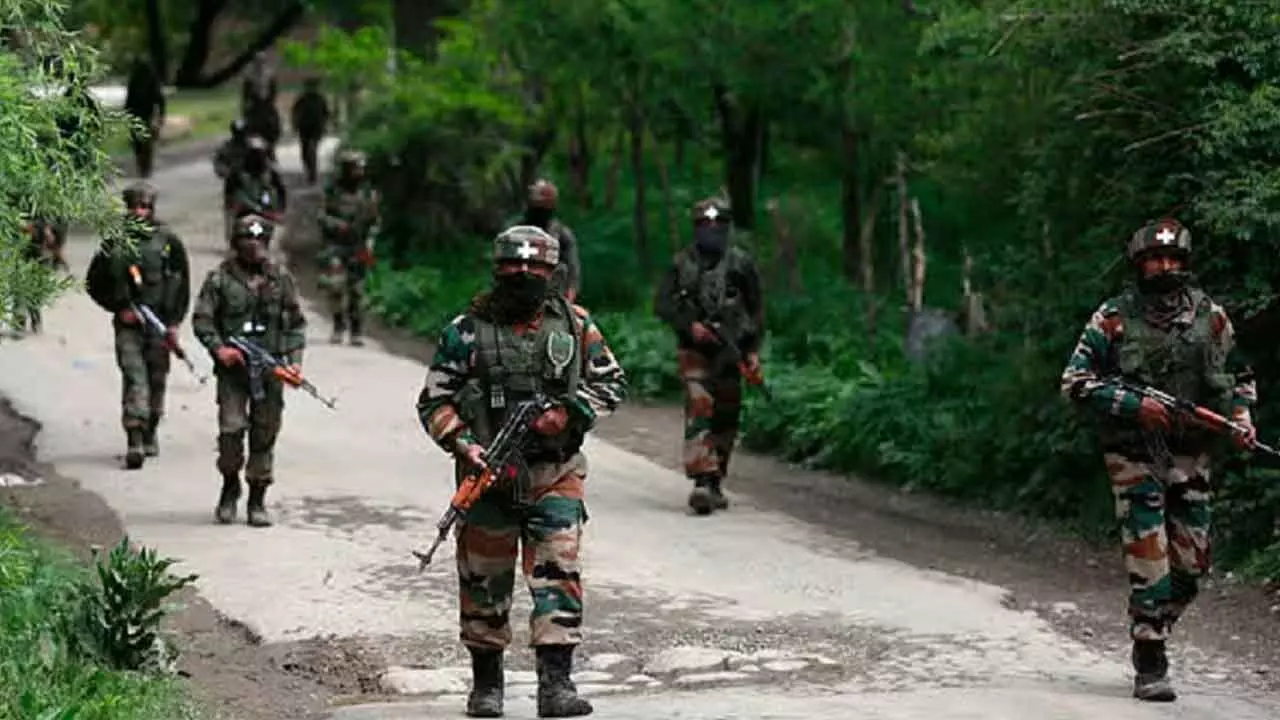Conflict And Ceasefire: Has India Built Ideological Ghetto?
The speeches and actions of the Prime Minister and cabinet ministers point to a shift in national stance
Conflict And Ceasefire: Has India Built Ideological Ghetto?

The recent conflict with Pakistan has only exposed India’s weak diplomacy and the fallibility of militarism. Except for Afghanistan, no country came to India’s support. The just-concluded conflict was not carefully planned. There is a need to reconsider armed retaliation for every terrorist activity
The Modi government’s decision to engage in conflict with Pakistan following the Pahalgam Terror Attack, followed by agreeing to an unexpected pause, reveals a flawed strategy in dealing with a problematic neighbor. The attempt to punish Pakistan deserves deeper analysis. Developments over the past week raise concerns about India’s stature on the world stage. Are we transforming into a ghetto-nation? Do our bold claims impress anyone beyond a homegrown, indoctrinated group? This group often takes to the streets, chanting toxic slogans in front of mosques, demanding the renaming of streets and cities, or rioting to remove the tomb of Mughal emperor Aurangzeb.
The speeches and actions of the Prime Minister and cabinet ministers point to a shift in national stance. The Prime Minister minced no words while addressing the nation after the ceasefire, invoking Lord Buddha and asserting that peace must be guided by strength. Was it necessary to reference Lord Buddha when describing the outcome of a war? Could he not have offered a more nuanced articulation of India’s stance on world peace? Should India advocate militarism?
Does this shift enhance our strategic accomplishments?
“Operation Sindoor is now India’s established policy in the fight against terrorism, marking a decisive shift in India’s strategic approach. The operation has set a new standard, a new normal in counter-terrorism measures. There are three key pillars of India’s security doctrine: first, Decisive Retaliation, where any terrorist attack on India will be met with a strong and resolute response. India will retaliate on its terms, targeting terror hubs at their roots. The second is No Tolerance for Nuclear Blackmail; India will not be intimidated by nuclear threats. Any terrorist haven operating under this pretext will face precise and decisive strikes. The third pillar is No Distinction Between Terror Sponsors and Terrorists; India will no longer view terrorist leaders and the governments sheltering them as separate entities. During Operation Sindoor, the world once again witnessed Pakistan’s disturbing reality—senior Pakistani military officials openly attending the funerals of eliminated terrorists, proving Pakistan’s deep involvement in state-sponsored terrorism,” he asserted.
Does this amount to more than a strongly worded expression of militarism? When compared with his predecessors’ policies, no substantive addition emerges beyond direct armed conflict with Pakistan. This has been at the core of Indian foreign policy since the 26 November 2008 terror attack on Mumbai. India has long alleged that cross-border terrorism is sponsored by the Pakistani state, asserting that no talks are possible without its cessation. All ties, including travel and trade, have been severed. India also successfully proved to the world that Pakistan was complicit in the Mumbai attack, with the perpetrators based in Pakistan. This required patience and meticulous planning. Manmohan Singh achieved this without engaging in one-upmanship, confident in his approach.
Modi, in contrast, seeks to project himself as a masculine leader. Such tendencies can lead a nation into despair. The militarism that Modi is exposing India to carries elements of a personality cult. This is a universal phenomenon, as militarism often relies on a hero or a group of heroes. Hitler exemplifies the individual hero, while the Samurai represent a group of heroes who commit suicide in the face of defeat.
However, it would be a mistake to view Modi’s militarism as solely an individual pursuit. It is rooted in the ideology of the RSS. The dream of creating a Hindu Rashtra is deeply intertwined with militarism. Paramilitary training and drills are integral to RSS activities. The khaki uniform further confirms its endorsement of militarism. The obsession with militarism is so ingrained in Hindutva ideology that Hindu Mahasabha leader VD Savarkar advocated joining the British Indian Army, while another stalwart, BS Moonje, devoted efforts to establishing a military school in Nashik.
The overt display of strength and jingoistic slogans like “there is no love without fear” does not help win allies. China, a leading state that practices militarism, underplays it and maintains good relations with its neighbors. The recent conflict with Pakistan has only exposed India’s weak diplomacy and the fallibility of militarism. Except for Afghanistan, no country came to India’s support. The just-concluded conflict was not carefully planned. There is a need to reconsider armed retaliation for every terrorist activity.
A major weakness in the operation against Pakistan emerged during the declaration of the ceasefire. Why did US President Donald Trump announce the ceasefire before India? Does his claim of brokering peace have any basis? Trump’s actions have reduced India’s stature to that of Pakistan.
Modi’s obsession with militarism is evident in his disregard for opposition parties. He avoids holding all-party meetings or convening special sessions of Parliament, instead visiting army bases. Will this enhance his or India’s stature? The BJP and RSS should reflect on India’s past military successes. India won all four wars against Pakistan without embracing militarism, adhering to secularism and democracy, stances that earned global acceptance.
India must move beyond the ideological ghetto of Hindutva. It will neither win wars nor secure allies.
(The author is a senior journalist. He has experience of working with leading newspapers and electronic media including Deccan Herald, Sunday Guardian, Navbharat Times and Dainik Bhaskar. He writes on politics, society, environment and economy)

